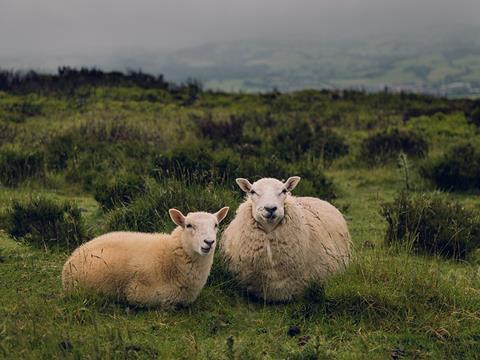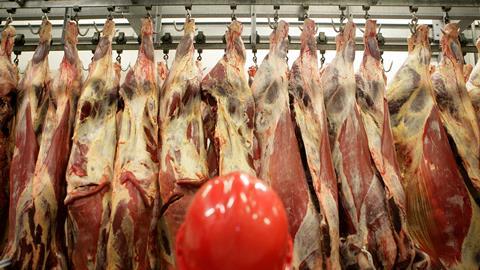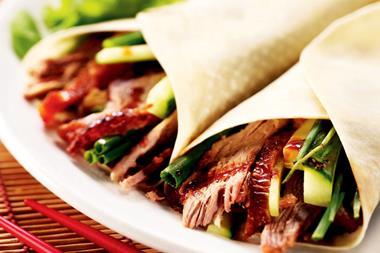With three months to go and no deal in sight, business is doing all it can – but is it enough?
No one is ready for no-deal.” That was the conclusion of a new report by the Confederation of British Industry this week.
Not only does the government have a huge amount left to do before October, but many businesses are less prepared now than they were in March, it warned.
And the risk of no deal has never been greater. New PM Boris Johnson was this week accused by Welsh sheep farmers of playing “Russian roulette” after proclaiming the Withdrawal Agreement “dead” and insisting the UK would leave without a deal on 31 October unless the EU was prepared to renegotiate.
So with the meat industry among the sectors set to be most affected by no-deal, what are processors doing to prepare?
The meat industry is almost uniquely vulnerable. Not only is it one of the few sectors that would face tariffs on EU imports under the government’s temporary schedule, it also relies on exports to maintain carcase balance and thus profitability across the sector. And as a chilled, highly perishable product, meat is at high risk from delays at borders and ports.
In a bid to minimise potential disruption, UK processors and retailers began stockpiling some meat ahead of the March Brexit deadline. Imports of EU frozen beef and pork were up 10.0% and 24.1% respectively year on year in January 2019, research by The Grocer found.
However, they have since had to run down that stock, and the revised October deadline - which falls just seven weeks before Christmas - is limiting their ability to prepare in the same way this time around.
“We have done some stockpiling, but a lot of cold stores are already full, and this will become even more of a pressing situation in the run-up to Christmas,” says one beef processor.
Indeed, from the meat industry’s point of view, Brexit “couldn’t be happening at a worse time”, says BMPA CEO Nick Allen. “We import a huge amount of bacon and ham from Europe, which is consumed in large quantities around Christmas,” he adds. “Supplies could well be challenging.”
Danish Crown, which supplies pork and bacon from Denmark to the UK, says it continues to “work with our customers to determine and plan their requirements”. However, a spokesman agrees the issue of limited cold store capacity in the UK has been “exacerbated” by the new October deadline.
The short shelf life on fresh meat means stockpiling is also not an option for many products supplied into UK retailers, he adds.
“You can’t have a spare part for everything and you don’t know what’s going to break next”
“The vast majority of Danish Crown exports to the UK come via the Esbjerg to Immingham route and not via the more high-profile Dover-Calais route,” he says. “So the business has been working with Esbjerg port authorities and logistics providers to be as prepared as we can.”
Processors with a UK supply base are less exposed, but some are stockpiling things like packaging and dry ingredients.
“We see the main issues being on import implications, whether it be ingredients, packaging or other commodities for our business,” says a spokesman for 2 Sisters. “We have formulated 90 mitigation actions for all these risk areas and are confident we can maintain continuity of supply.”
Most plant machinery is sourced from Europe, so processors have also been building up stocks of spare parts, says Allen. However, there is a limit to how much they can store. “You can’t have a spare part for everything and you don’t know what’s going to break next,” he says. “The government needs to make sure there is an avenue for some of this machinery or plants will shut down while they are waiting on spares.”
Labour
Access to migrant labour in the event of no deal is another concern, particularly in the light of new home secretary Priti Patel’s promise to radically rewrite immigration policy and pursue a points-based system akin to Australia’s.
In its latest annual report, Cranswick said it had “intensified” its efforts to protect its access to labour in the event of no-deal. “These include: cultivating employee engagement; continuing to focus on attracting and retaining talent; and continually improving the general working environment.”
Poultry processor Avara Foods, meanwhile, has been investing in automation. “Despite the uncertainty, we are still investing in our business - we have around £23m of projects on the books at the moment, with more to come,” says CEO Andy Dawkins. “At the heart of these is greater automation.”
While meat businesses are doing their best to prepare for no-deal, ongoing uncertainty around the UK’s future trading relationship with the EU is an additional headache. “Without clear information that sets out the mechanics of the new arrangement, no business can adequately prepare,” warns Dawkins.
With less than three months to go, processors are still waiting for information on things like health identification marks, customs checks and labelling. “What we are lacking is detail. And that restricts our ability to action or implement. As the clock ticks on, those pressures increase,” says the Danish Crown spokesman.
There are also still “big question marks around which countries we will be able to export to outside of Europe” in a no-deal, says Allen. At the moment, the government has secured worryingly few veterinary agreements with third country trading partners, he adds.
“If we have a no-deal Brexit, the pound will drop away quickly”
Yet another threat to profitability is currency fluctuations. The pound dropped to a two-year low this week, and could plummet further. “If the forecasters are right and we do have a no-deal Brexit, the pound will drop away quickly and increase the price of anything imported,” says Allen. Some processors are looking at hedging currency, but they risk losing out if sterling swings back the other way. “I suspect a lot will just say it will be what it will be,” he adds. “And it could well be that is something we look to pass on to the consumer.”
With so many questions left unanswered, the possibility of shortages and price hikes in the run-up to Christmas can’t be ruled out. The CBI, it seems, was correct in its warning that both the government and business are a long way off being ready for no-deal.
What the sheep sector wants from the PM

With 96% of UK lamb exports currently going to the EU, a no-deal would be particularly catastrophic for the sheep sector. To avoid a “mass cull of lambs” in the event of a no-deal Brexit, the National Sheep Association wants the government to:
- Offer tariff relief to offset the high duties UK sheepmeat would face in the EU
- Put a temporary stop to exports to ensure more UK production can be used domestically
- Invest in cold store capacity ahead of October
- Procure more UK lamb for markets such as the armed forces, schools and hospitals
- Ensure the UK is listed as a third country able to trade with the EU as a matter of urgency in a no-deal scenario




















No comments yet